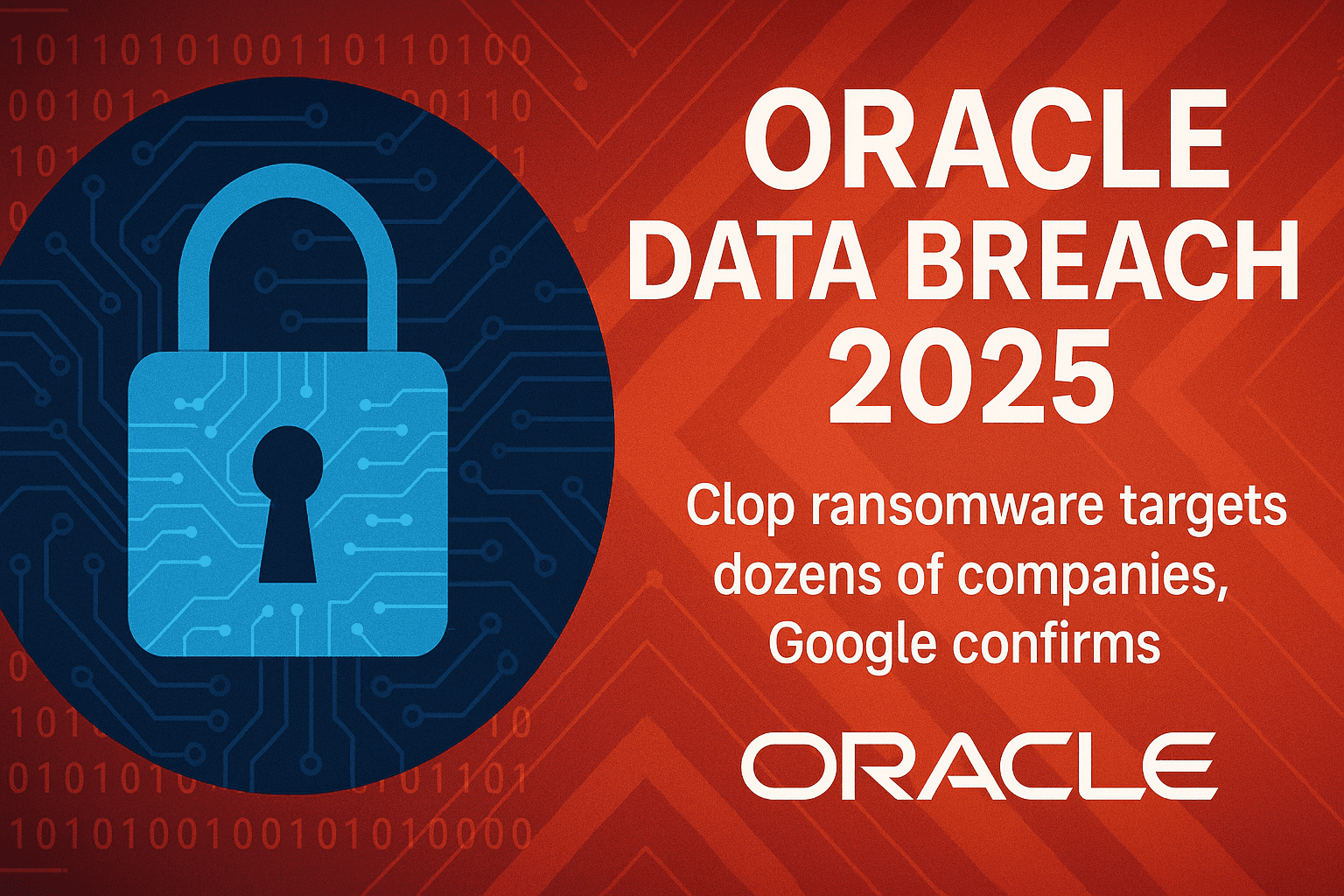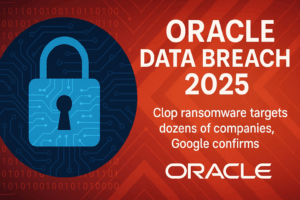The Oracle data breach 2025, confirmed by Google security researchers, has exposed dozens of global companies to data theft and extortion.
Google security researchers have revealed that a new wave of corporate extortion attacks has compromised data from dozens of organizations worldwide — with hackers exploiting multiple flaws in Oracle’s enterprise software.
🔍 What Happened: Oracle E-Business Suite Under Attack
In a statement shared with TechCrunch, Google’s Threat Analysis Group (TAG) confirmed that the Russia-linked Clop ransomware and extortion group breached numerous companies by exploiting vulnerabilities in Oracle E-Business Suite, a platform widely used for managing customer records, HR data, and financial operations.
According to Google, the campaign dates back to July 10, roughly three months before the breaches were first detected, suggesting that threat actors had long-term, undetected access to sensitive systems.
🧠 Inside the Breach: Zero-Day Exploited Without Login Credentials
Oracle acknowledged that attackers were still abusing its software as recently as this week.
The company’s latest security advisory warns that a zero-day vulnerability in its E-Business Suite “can be exploited over a network without requiring a username or password,” meaning even secure corporate environments were exposed.
Zero-day exploits are especially dangerous because vendors have “zero days” to patch the flaw before attackers weaponize it — leaving organizations vulnerable until updates are deployed.
🕵️ The Clop Gang’s Signature Tactics
The Clop group, known for high-profile ransomware and data-theft operations, has repeatedly leveraged undisclosed software vulnerabilities to steal corporate and customer data at scale.
Past Clop operations targeted popular managed file-transfer tools such as MOVEit, Cleo, and GoAnywhere, disrupting financial institutions, hospitals, and global logistics firms.
This latest campaign extends that pattern — but now focuses on Oracle enterprise systems, which power thousands of major corporations worldwide.
🧩 Conflicting Statements from Oracle
Earlier this week, Oracle’s chief security officer Rob Duhart suggested the Clop campaign was tied to vulnerabilities already patched in July and that the threat was over.
However, that blog post has since been removed.
Google’s follow-up analysis contradicts that claim, confirming that active exploitation is still underway and that Oracle customers should treat the risk as ongoing.
🔐 What Enterprises Should Do Now
Google published a technical advisory listing suspicious email addresses, IPs, and indicators of compromise to help defenders detect potential breaches.
Security experts urge organizations using Oracle’s E-Business Suite to:
- Apply the latest Oracle security updates immediately
- Audit network activity for unusual outbound connections
- Block known malicious domains associated with the Clop campaign
- Train executives and employees to recognize extortion or phishing attempts
💬 Why It Matters
This incident underscores how supply-chain vulnerabilities in widely used enterprise software can cascade across global industries.
As companies race to digitize operations, attackers are increasingly targeting backend systems that store the most sensitive business data — turning corporate IT infrastructure into a lucrative target.
Next Steps for Oracle Users:
Following the Oracle data breach 2025, cybersecurity experts recommend immediate patching, enabling multi-factor authentication, and reviewing access logs. Oracle customers should subscribe to the company’s security alerts to stay ahead of future vulnerabilities.
🔗 Source
Google Threat Analysis Group – Official Statement (TechCrunch Report)
Oracle Security Advisory (E-Business Suite Vulnerability)



